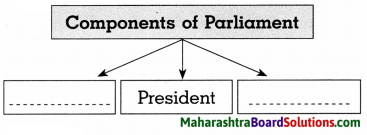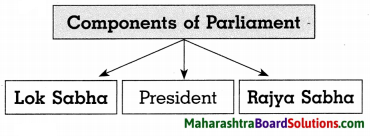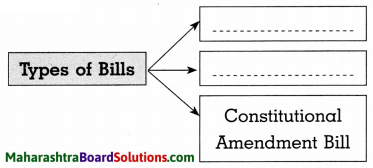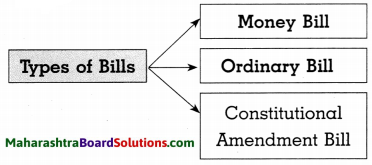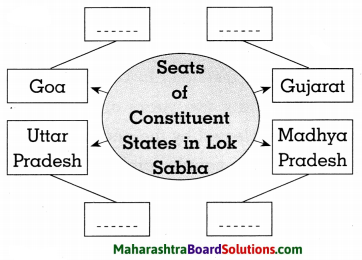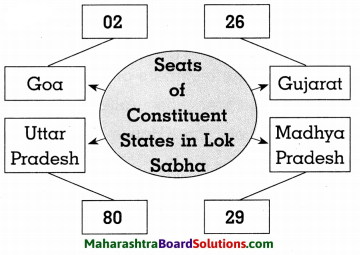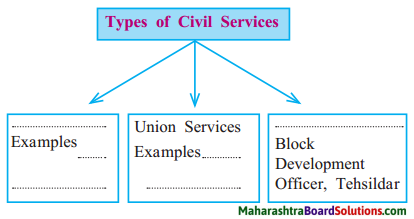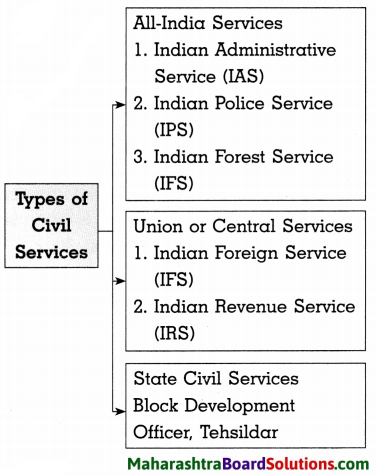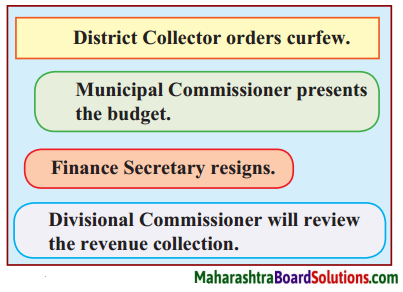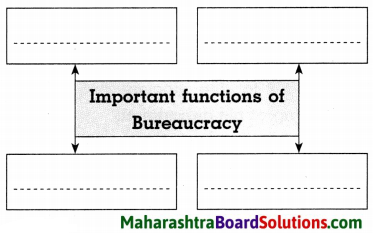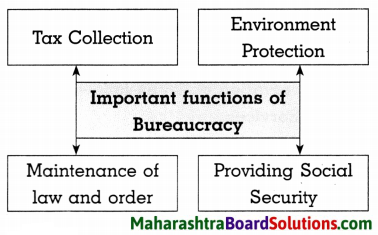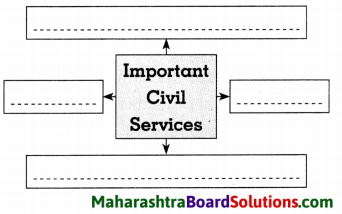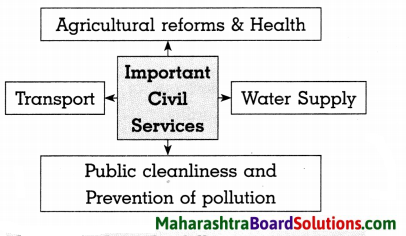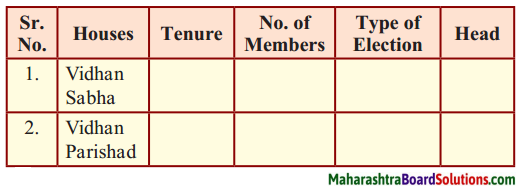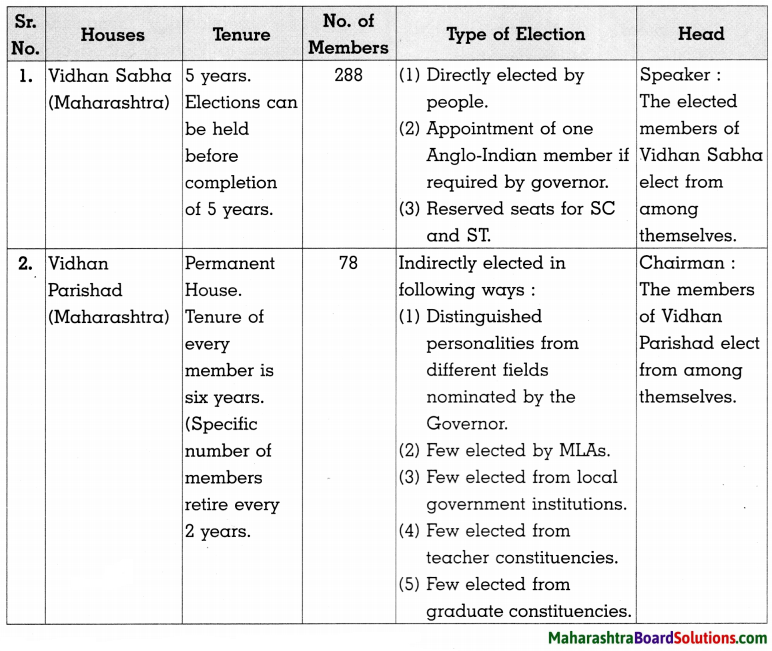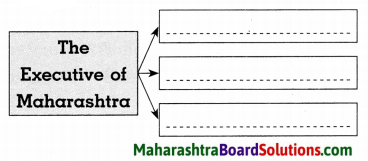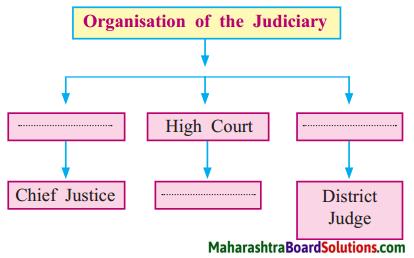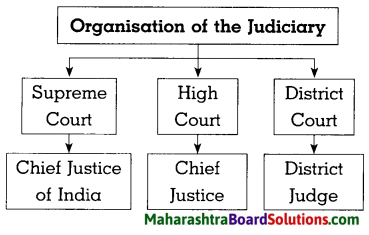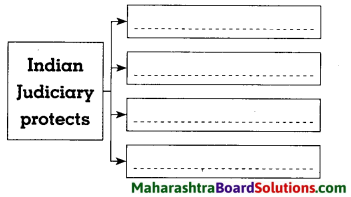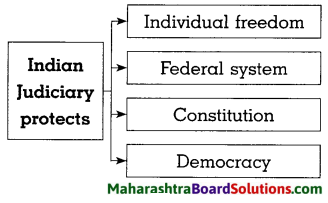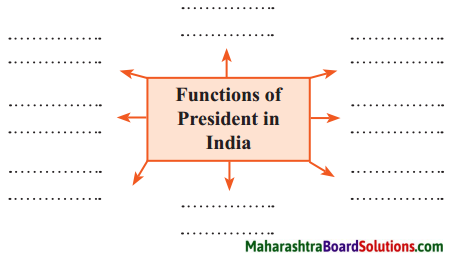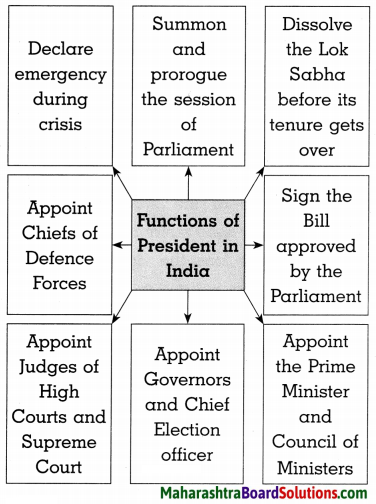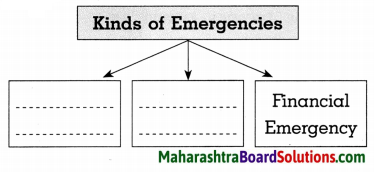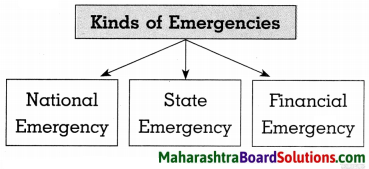Balbharti Maharashtra State Board Class 8 Maths Solutions covers the Practice Set 10.2 8th Std Maths Answers Solutions Chapter 10 Division of Polynomials.
Practice Set 10.2 8th Std Maths Answers Chapter 10 Division of Polynomials
Division of Polynomials Class 8 Practice Set 10.2 Question 1. Divide and write the quotient and the remainder.
i. (y2 + 10y + 24) ÷ (y + 4)
ii. (p2 + 7p – 5) ÷ (p + 3)
iii. (3x + 2x2 + 4x3) ÷ (x – 4)
iv. (2m3 + m2 + m + 9) ÷ (2m – 1)
v. (3x – 3x2 – 12 + x4 + x3) ÷ (2 + x2)
vi. (a4 – a3 + a2 – a + 1) ÷ (a3 – 2)
vii. (4x4 – 5x3 – 7x + 1) ÷ (4x – 1)
Solution:
i. (y2 + 10y + 24) ÷ (y + 4)
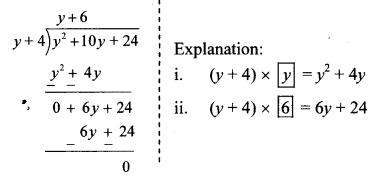
∴ Quotient = y + 6
Remainder = 0
ii. (p2 + 7p – 5) ÷ (p + 3)
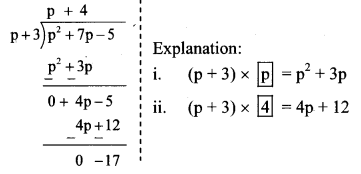
∴ Quotient = p + 4
Remainder = -17
iii. (3x + 2x2 + 4x3) ÷ (x – 4)
Write the dividend in descending order of their indices.
3x + 2x² + 4x³ = 4x³ + 2x² + 3x
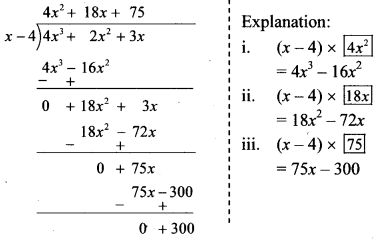
∴ Quotient = 4x² + 18x + 75
Remainder = 300
iv. (2m3 + m2 + m + 9) ÷ (2m – 1)
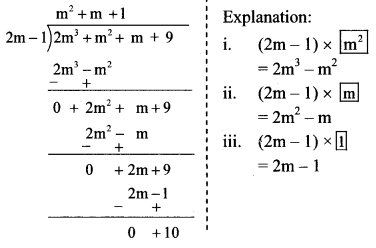
∴ Quotient = m² + m + 1
Remainder = 10
v. (3x – 3x2 – 12 + x4 + x3) ÷ (2 + x2)
Write the dividend in descending order of their indices.
(x4 + x3 – 3x2 + 3x – 12) ÷ (x2 + 2)
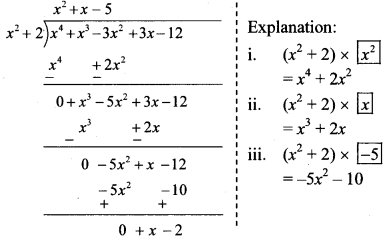
∴ Quotient = x² + x – 5
Remainder = x – 2
vi. (a4 – a3 + a2 – a + 1) ÷ (a3 – 2)
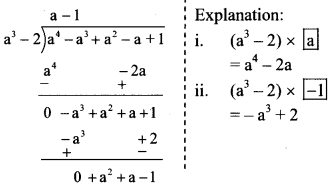
∴ Quotient = a – 1
Remainder = a² + a – 1
vii. (4x4 – 5x3 – 7x + 1) ÷ (4x – 1)
Write the dividend in descending order of their indices.
(4x4 – 5x3 – 7x + 1) = (4x4 – 5x3 + 0x2 – 7x + 1)
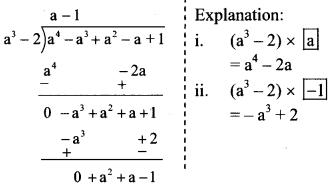
∴ Quotient = \(x^{3}-x^{2}-\frac{x}{4}-\frac{29}{16}\)
Remainder = \(\frac { -13 }{ 16 }\)
